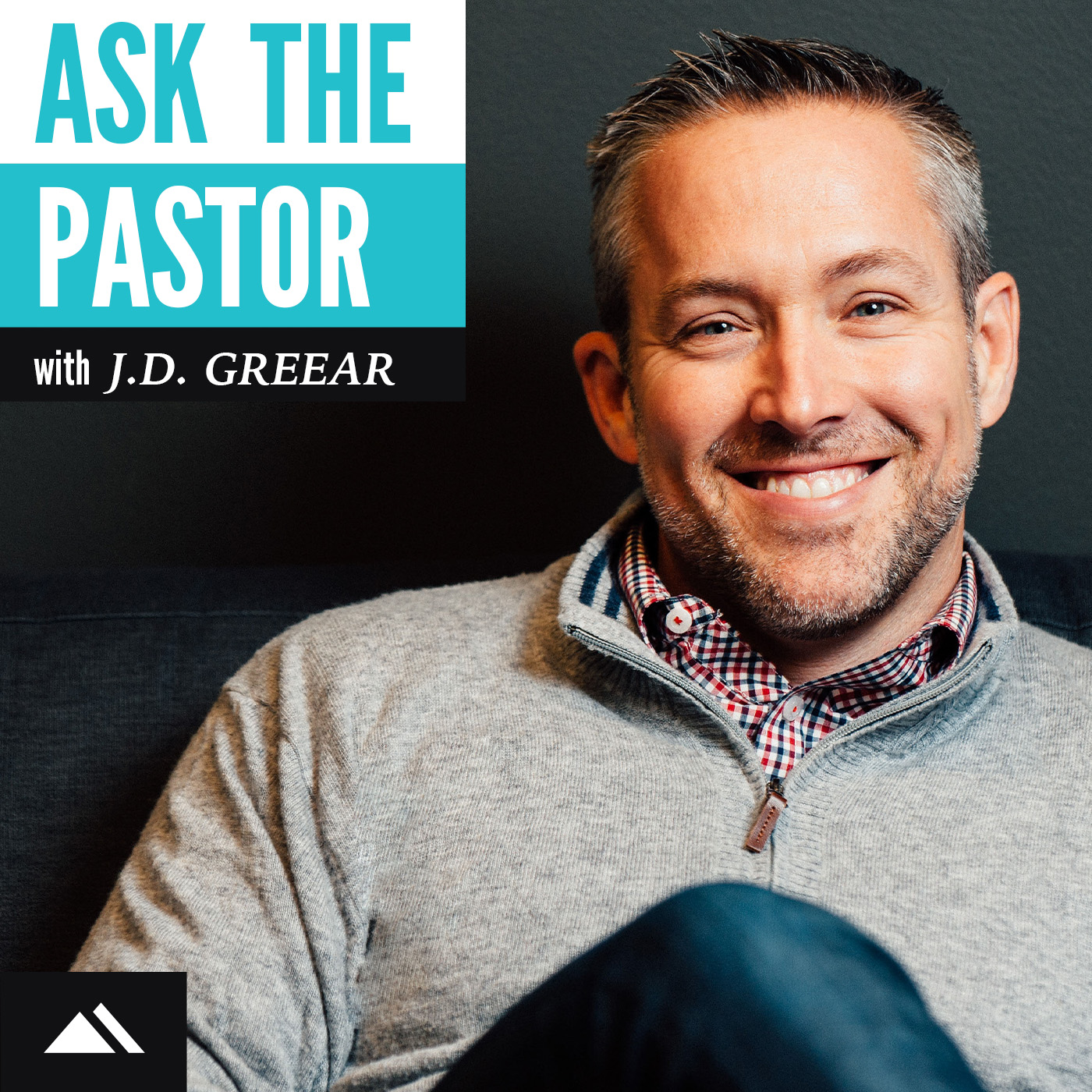

Ask the Pastor with J.D. Greear
J.D. Greear
Ask the Pastor with J.D. Greear is a weekly podcast that answers tough questions and tackles relevant issues in a way that is filled with grace, understanding, and wisdom from God’s Word. Hosted by Matt Love.
Episodes
Mentioned books

Feb 15, 2021 • 16min
How do you answer pro-choice arguments?
Pastor J.D. explains a few of the most common pro-choice arguments and responds to each one with scientific and scriptural insight.

Feb 8, 2021 • 11min
Are the Morals of the Bible Culturally Regressive?
Pastor J.D. discusses how this view might be a reflection of our time and place as well as the Bible’s role throughout history.

Jan 25, 2021 • 15min
How Should Christians Have Conversations About CRT?
Pastor J.D. shares why humility and repentance are key in any discussion about Critical Race Theory.

Jan 25, 2021 • 18min
What Should Christians Know About CRT?
Pastor J.D. briefly explains CRT and how injustice should be considered humbly, soberly, and charitably in the light of Scripture.

Jan 18, 2021 • 11min
Re-Broadcast: Can Christians believe in evolution?
In this re-broadcast of one of our most popular episodes, Pastor J.D. looks at the creation narrative and explains that an open Bible and an open mind are key when contemplating the concept of evolution.

Jan 11, 2021 • 10min
Is it wrong to ask God for success?
Pastor J.D. explains that it's more about "the why" than "the what" we ask God.

Jan 4, 2021 • 10min
May Christians With Same-Sex Attraction Have Non-Sexual Romantic Relationships?
Pastor J.D. talks about why the definitions of friendship and marriage are vital to understanding the Bible’s intent for relationships.

Dec 28, 2020 • 13min
Is it Christian to support the 2nd amendment?
Pastor J.D. discusses the purpose of the Second Amendment and a Christian perspective of self-defense.

Dec 21, 2020 • 9min
What is original sin and how is it fair?
Pastor J.D. explains original sin and why it’s bad news that makes the good news of salvation possible.

Dec 14, 2020 • 1h 9min
What if There’s More to the Christmas Story than You Thought?
Pastor J.D. wrote a short evangelistic book this year called, "Searching for Christmas: What if There's More to the Story than You Thought?", to put a gift in the hands of Christians for those they're reaching out to. We're happy to be able to present to you the full audio book in its entirety to enjoy and pass along to others.


